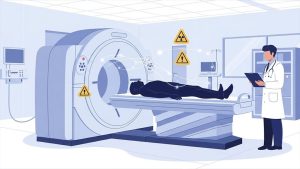Pain is a common part of life, but when it becomes chronic or unbearable, it can drastically affect your quality of life.
Whether it’s persistent back pain, joint discomfort, or pain from an injury, knowing when to seek help from a pain management specialist is crucial.
These experts are trained to diagnose and treat various types of pain, offering treatments that go beyond standard over-the-counter options.
So, when should you consider seeing a pain management specialist? Here’s what you need to know.
The Role of Pain Management Specialists in Treating Chronic and Acute Pain

Pain management specialists play a key role in helping patients manage both chronic and acute pain. They use a variety of treatment methods, including medications, physical therapy, and minimally invasive procedures, to alleviate pain and improve daily function. These specialists tailor care to each patient’s unique needs, ensuring that pain is addressed from its root cause, offering long-term relief rather than temporary fixes.
Understanding Pain: Acute vs. Chronic
Pain can be classified into two main categories: acute and chronic. Understanding the difference between these types of pain is essential in determining the best course of treatment and when to seek professional help.
What is Acute Pain?
Acute pain is sudden and typically short-term, often occurring as a result of injury, surgery, or trauma. It usually resolves as the body heals but may require medical attention if it persists or worsens.
What is Chronic Pain?
Chronic pain lasts for months or even years and can stem from conditions such as arthritis, nerve damage, or past injuries. Unlike acute pain, it doesn’t always go away with healing and may require ongoing management to improve quality of life.
For older adults, chronic pain is often linked to age-related conditions like osteoarthritis or degenerative disc disease, which may necessitate specialized care to support elderly patients in maintaining independence and daily function.
Signs You Need to See a Pain Management Specialist
It’s not always easy to know when to seek help for pain, but certain signs can indicate the need for a specialist. If you’re experiencing any of the following, it may be time to consult a pain management expert for a proper evaluation and treatment plan.
1. Persistent Pain that Doesn’t Improve
If you’ve been dealing with pain for weeks or months without improvement, despite rest or over-the-counter medications, it’s a sign that professional help is needed. Persistent pain can signal an underlying condition that requires specialized treatment.
2. Limited Mobility
Pain that limits your ability to move freely or perform daily tasks can severely impact your quality of life. A pain management specialist can help restore mobility by targeting the source of the pain through customized treatments.
3. Increased Dependence on Pain Medications
Relying more and more on pain medications to get through the day could indicate that your current treatment plan is insufficient. A specialist can offer alternative therapies to reduce dependence on medications while managing pain effectively.
4. Pain that Interferes with Sleep
Chronic pain that disrupts your sleep can lead to a cycle of fatigue and increased discomfort. Pain management specialists can address the root cause of the pain to help you sleep better and improve your overall health.
5. Nerve-Related Pain
Sharp, burning, or tingling pain often points to nerve damage or neuropathy, which requires specialized care. A pain management specialist can offer treatments like nerve blocks or medications to relieve nerve-related pain and prevent it from worsening.
Common Conditions Treated by Pain Management Specialists

Pain management specialists treat a wide range of conditions that cause chronic or severe pain. Their expertise allows them to address both the symptoms and the underlying causes to improve patient’s overall quality of life.
Back and Neck Pain
Back and neck pain are among the most common reasons people seek pain management. Specialists can offer treatments like physical therapy, injections, or minimally invasive procedures to alleviate pain and restore mobility.
Joint Pain
Whether from arthritis, injury or wear and tear, joint pain can significantly limit your movement. Pain management specialists use a variety of treatments, including joint injections and regenerative therapies, to reduce pain and improve joint function.
Neuropathic Pain
Neuropathic pain, caused by nerve damage, often presents as burning or tingling sensations. Specialists treat this condition with medications, nerve blocks, or other targeted interventions to relieve pain and prevent further damage.
Headaches and Migraines
For those suffering from chronic headaches or migraines, pain management specialists can offer relief through medications, nerve blocks, or lifestyle modifications. They work to reduce the frequency and severity of headaches, improving day-to-day functioning.
Fibromyalgia
Fibromyalgia causes widespread pain and fatigue, often affecting multiple areas of the body. Pain management specialists develop personalized treatment plans, which may include medications, physical therapy, and lifestyle changes, to help manage symptoms.
Treatment Options Provided by Pain Management Specialists
Pain management specialists offer a wide range of treatment options tailored to each patient’s specific condition. These treatments aim to relieve pain, restore function, and improve overall quality of life without relying solely on medication.
Non-Invasive Treatments

Non-invasive treatments include physical therapy, acupuncture, and chiropractic care. These methods are often used to reduce pain and improve mobility without the need for surgery or other invasive procedures.
Medication Management
Specialists carefully manage and monitor the use of medications, including non-opioid and opioid options, to ensure effective pain relief. They work to find the right balance, minimizing side effects while addressing the root cause of the pain.
Minimally Invasive Procedures
Minimally invasive procedures, such as nerve blocks or steroid injections, target specific pain areas with precision. These treatments can provide long-lasting relief with minimal recovery time compared to traditional surgery.
Interdisciplinary Approach
Many specialists take an interdisciplinary approach, combining medical, physical, and psychological therapies. This holistic strategy addresses all aspects of pain, ensuring a comprehensive plan for long-term management and improvement.
Taking the First Step Toward Pain Relief
If chronic or acute pain is affecting your daily life, it’s important to seek help from a pain management specialist. By understanding your pain and exploring the right treatment options, you can regain control and improve your overall well-being.
One Step Diagnostic offers comprehensive pain management solutions tailored to your needs, combining advanced techniques and a patient-centered approach to ensure effective relief. Don’t let pain hold you back—contact us today and take the first step toward a pain-free life today.




